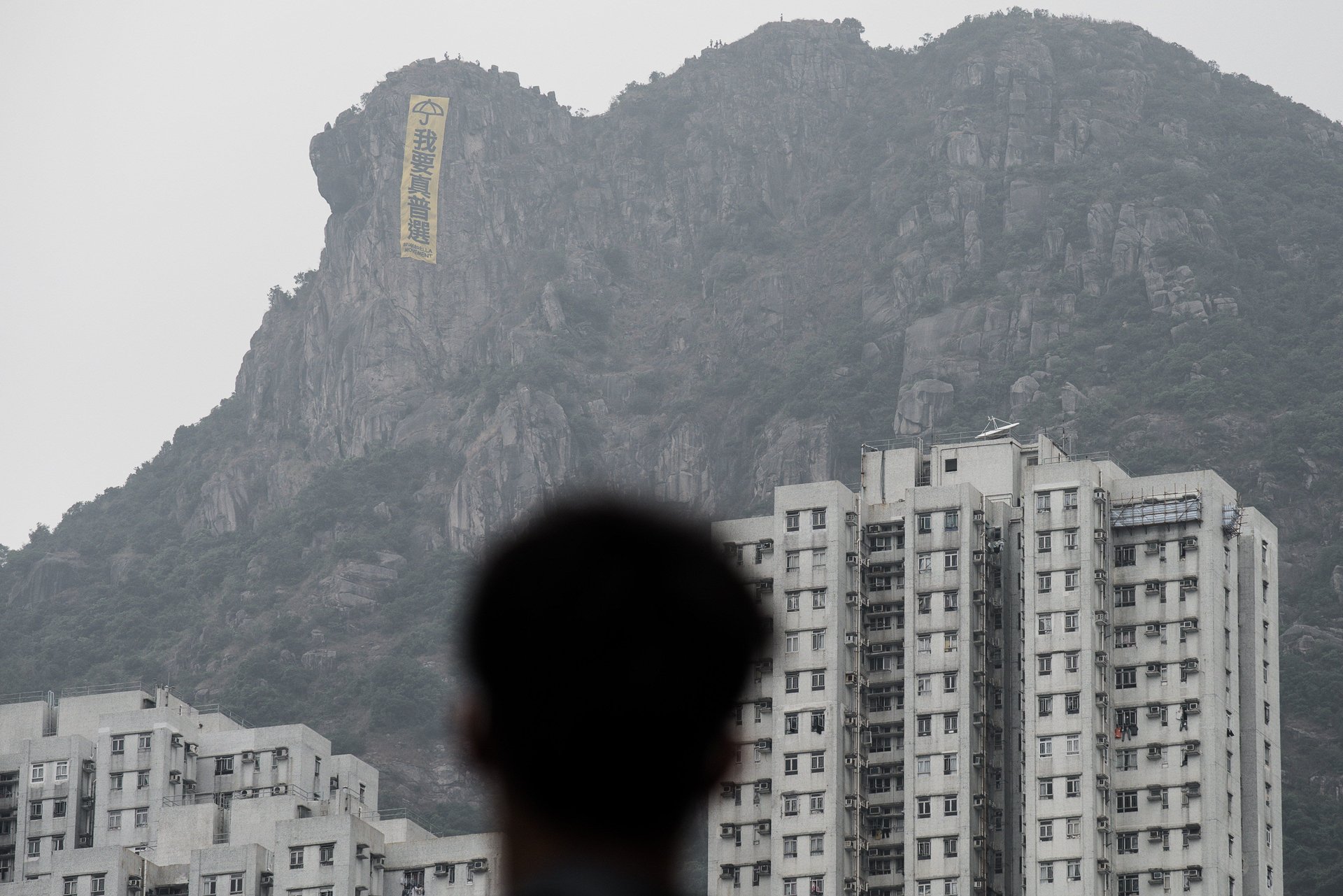Hong Kong is in the fight of its life—but don’t underestimate the city’s Lion Rock spirit
Hong Kong was once denounced as “a barren rock with nary a house upon it.”


Hong Kong was once denounced as “a barren rock with nary a house upon it.”
Yet it is that barren rock upon which Hong Kong’s spirit has been built. The idea of the “Lion Rock spirit”—of thriving in the face of bitter adversity—entered the collective imagination with a 1970s TV series about the lives of working-class residents living below the city’s iconic Lion Rock mountain, whose contours resemble the animal. Many of them had sought refuge in the then British colony from China’s political strife, and together they strove to improve their lot.
As the city transformed itself into a prosperous financial hub, that spirit evolved with it. And it was on full display this week during mass protests against a hated extradition law—the most dire threat yet to the “one country, two systems” framework that governs Hong Kong. Under the proposed law, suspects, including foreigners, could be sent to mainland China to face trial.
The specter of losing its freedoms has never been far from Hong Kong’s consciousness, given that its special status is set to end in 2047—and there are many signs that the turning point is coming sooner than expected. Resistance may well be futile, though you wouldn’t know that from the crowds who turned out this week, in scenes reminiscent of 2014’s Umbrella Movement.
At the largely leaderless gathering, people set up elaborate supply stations to distribute masks and water to douse tear gas fired by riot police, and looked out for one another—and for journalists too. After the violence and chaos, some even returned to clean up rubbish. It was a logistical achievement, and an inspiration for anyone dealing with creeping authoritarianism.
The odds were longer this time that Hong Kong could pull off a repeat of 2003, when its leaders, faced with demonstrations, abandoned a law to punish a host of political crimes. Yet on Saturday, Hong Kong’s chief executive said she was indefinitely suspending the extradition bill given the “prevailing consensus,” and the need to restore calm to the city. She thanked the city’s pro-Beijing lawmakers for urging her to “pause and think.” The concession may be too little, too late, with deep anger remaining over the efforts to fast-track the law, and police actions this week.
The protesters aren’t blinkered by rose-colored glasses—they know the strength of the Chinese government. Yet recent days have shown there are a million reasons—make that 7 million—nobody should underestimate the underdog in the fight for Hong Kong’s freedoms. The protesters vow to be out in the streets again this weekend seeking for the bill to be completely withdrawn.
This essay was originally published in the weekend edition of the Quartz Daily Brief newsletter. Sign up for it here.